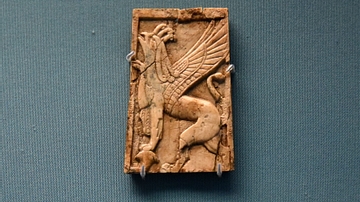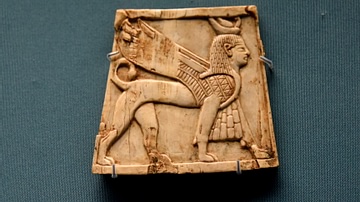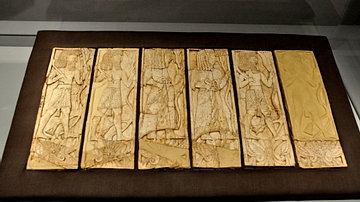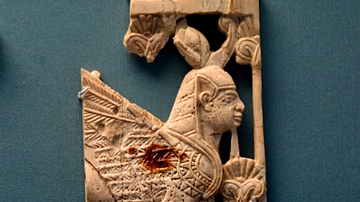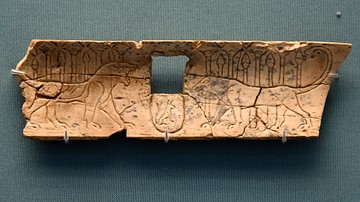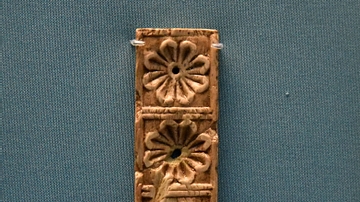Illustration
Never seen by the public before 2011. A small fragment of an ivory plaque from Nimrud. It shows a standing winged Egyptian man holding a stem of a lotus flower branching from a tree. The upper part shows a large lotus flower. Phoenician art. Neo-Assyrian Period, 9th to 8th centuries BCE. From Nimrud (ancient Kalhu), Mesopotamia, modern-day Iraq. (The British Museum, London).
New acquisition by the British Museum in 2011, made possible by generous support from donors including the British Museum Friends, the Art Fund and the National Heritage Memorial Fund. These ivories were excavated by the British School of Archaeology in Iraq, now the British Institute for the Study of Iraq (BISI), between 1949 and 1963, by Sir Max Mallowan.
About the Author
Cite This Work
APA Style
Amin, O. S. M. (2016, September 10). Nimrud Ivory Panel of a Winged Man. World History Encyclopedia. Retrieved from https://www.worldhistory.org/image/5654/nimrud-ivory-panel-of-a-winged-man/
Chicago Style
Amin, Osama Shukir Muhammed. "Nimrud Ivory Panel of a Winged Man." World History Encyclopedia. Last modified September 10, 2016. https://www.worldhistory.org/image/5654/nimrud-ivory-panel-of-a-winged-man/.
MLA Style
Amin, Osama Shukir Muhammed. "Nimrud Ivory Panel of a Winged Man." World History Encyclopedia. World History Encyclopedia, 10 Sep 2016, https://www.worldhistory.org/image/5654/nimrud-ivory-panel-of-a-winged-man/. Web. 18 Apr 2025.



